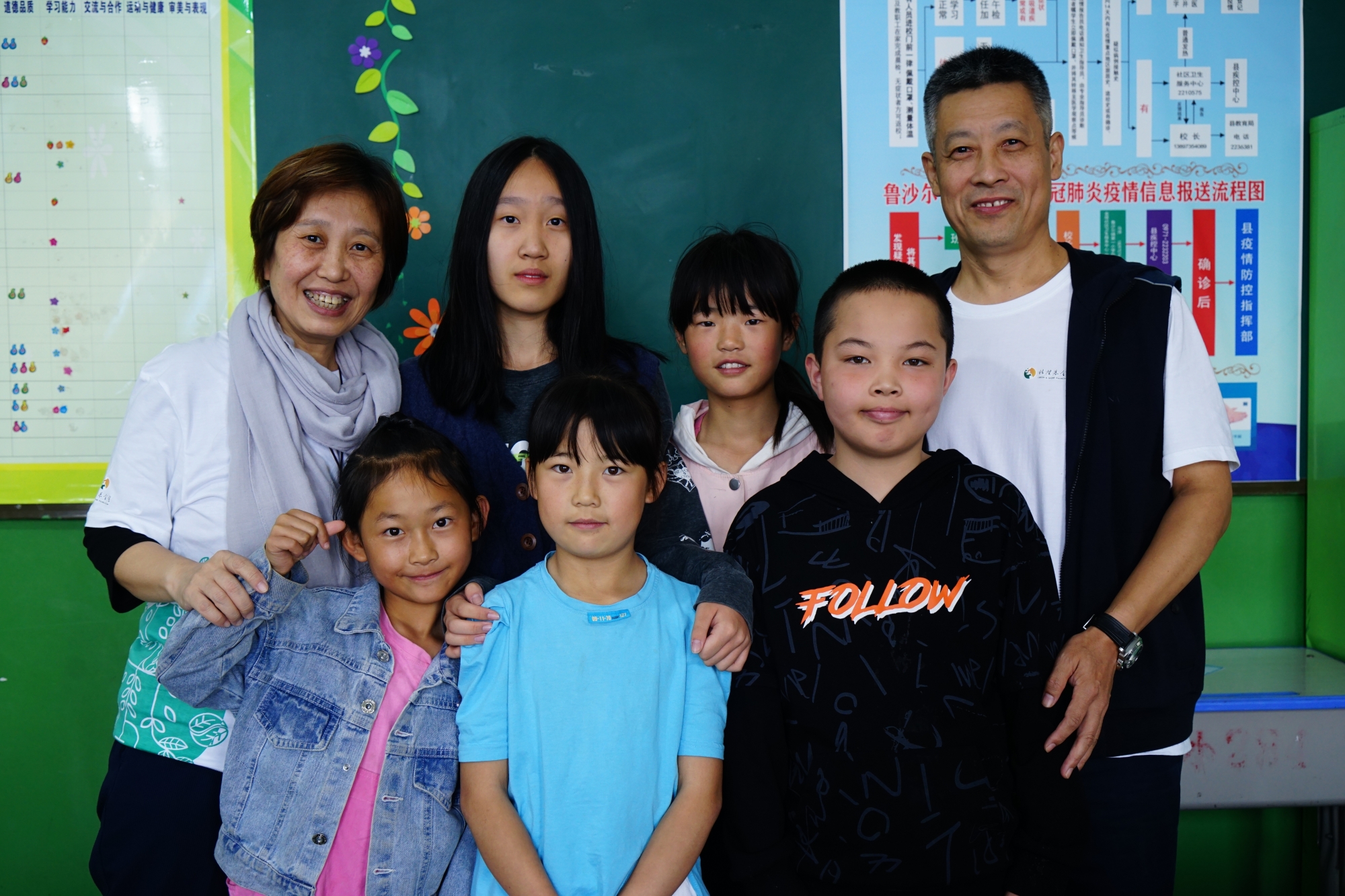
“It is better to give than to receive.” This aphorism has been drummed into my heart ever since my mother devoted herself to charity work. I could see her fill with happiness every time she told me the story of her traveling to poor areas, meeting people in need, and distributing supplies. I have followed in her footsteps and began donating monthly to different projects. It was 2012 when I started my story with the Green & Shine Foundation, which mainly focuses on fundamental education in developing regions. The Green & Shine Foundation organizes a camp for charity every year, and I had always hoped to join one. Unfortunately, my plans kept being disrupted. In 2018, it clashed with another summer camp in the United States. In 2020, a reading camp organized by the Green & Shine Foundation had to be canceled due to the Covid-19 pandemic. In 2021 when the number of Covid-19 cases in China was dwindling, I was finally able to volunteer at a reading summer camp in a remote village in Qinghai province, China, and I gained a lot from this experience.
Relating to people from diverse backgrounds was an unforgettable experience. It did not start well though. I felt isolated from two existing communities at the camp. One of which was the other four volunteers, who were all undergraduate students from the Beijing Institute of Technology and members of the same club at the university. The other community was the local students who had been in the same class for three years. Puzzled and embarrassed, I did not know where to start, but I kept myself busy, going from classroom to classroom, organizing the books on the desks for students and asking other volunteers if they needed help with setting up the tables and chairs. However, the situation changed by simply introducing myself. I learned more about the other volunteers. Though studying in the same university, they were from cities over a thousand miles apart. We shared our stories, sad and cheerful, hilarious, and embarrassing. They were very interested in my life abroad. I told them that my middle school was in Lake Placid, New York, where it was very cold, and about the many animals the school had, like horses, sheep, chickens, and even turkeys. They could not believe a school would have animals. I explained that I had heard from other people that our school used to be a farm. The pleasant conversation went on and on. There have been many people walking in and out of my life, but they left their footprints on my heart with their stories.
One thing I have learned from this camp was that our teachers were responsible for many things, both in and out of the classroom. Even though most of the classes had already been designed by the four undergraduate students beforehand, we still needed to prepare teaching aids for each class. A timer might help increase the tension; another world globe might be needed to boost class efficiency. Even though it was not hard, it took a considerable amount of time. The volunteers also had to coordinate with each other. For example, we needed to discuss the feedback from students and work out how to improve future classes. For example, whether an experiment should be added to better demonstrate particular concepts as well as making the class more interesting, if students should be more strategically grouped to manage over-excitement during class discussions. There was always room for improvement. As well as teaching, the volunteers had to coordinate with the school and the parents to solve administrative issues. We needed to ensure the safety of students or mediate in any disputes between students. What impressed me the most was that teachers actually came to school much earlier than they were supposed to because some parents had to drop their children at school on their way to an early shift. After all, it would not be safe to leave an eight-year-old in the classroom on their own. My experience at the camp has led me to believe that all teachers, especially those in remote villages, should be respected.
My experience in Qinghai still comes back to me often, and I have shared my story with many of my classmates and friends in the United States. And I believe the story lives on.